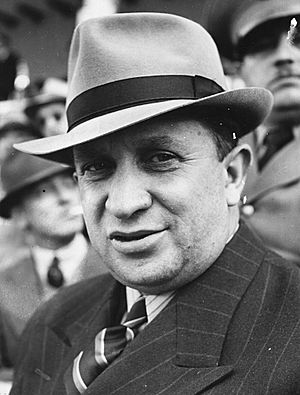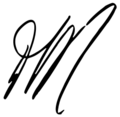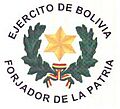David Toro facts for kids
Quick facts for kids
David Toro
|
|
|---|---|

Toro in 1940
|
|
| 35th President of Bolivia | |
|
President of the Junta
|
|
| In office 22 May 1936 – 13 July 1937 |
|
| Vice President | Vacant |
| Preceded by | Germán Busch (provisional) |
| Succeeded by | Germán Busch |
| Minister of Government and Justice | |
| In office 17 June 1930 – 28 June 1930 |
|
| President | Council of Ministers |
| Preceded by | Germán Antelo Arauz |
| Succeeded by | Oscar Mariaca Pando |
| Minister of Development and Communications | |
| In office 16 May 1930 – 17 June 1930 |
|
| President | Hernando Siles Reyes Council of Ministers |
| Preceded by | Manuel Rigoberto Paredes |
| Succeeded by | Carlos Banzer |
| Personal details | |
| Born |
José David Toro Ruilova
24 June 1898 Sucre, Bolivia |
| Died | 25 July 1977 (aged 79) Santiago, Chile |
| Spouse | Serafina Abaroa |
| Parents | Mariano Toro Teresa Ruilova |
| Education | Military College of the Army |
| Signature | |
| Military service | |
| Allegiance | |
| Branch/service | |
| Rank | Colonel |
| Battles/wars | Chaco War |
José David Toro Ruilova (born June 24, 1898 – died July 25, 1977) was a high-ranking officer in the Bolivian army. He was a Colonel and part of the main command during the Chaco War (1932–1935). Later, he became the 35th president of Bolivia, serving from 1936 to 1937.
Toro was one of the leaders of a military takeover that removed President Daniel Salamanca in November 1934. He became president in May 1936 after a military movement led by his friend, Major Germán Busch.
Contents
David Toro's Time as President
When David Toro became president, he moved into the Palacio Quemado, which is the official residence and office of the President of Bolivia. He immediately faced many big problems. Bolivia had a huge government debt from the war. The country was also still struggling with economic issues because of the Great Depression, a worldwide economic downturn.
Dealing with Standard Oil
One of Toro's main challenges was a disagreement with the Standard Oil Corporation. This company was accused of not supporting Bolivia enough during the war. There were even claims that Standard Oil was secretly moving Bolivian oil to Argentina. Argentina was a strong supporter of Paraguay, which was Bolivia's enemy in the Chaco War.
In March 1937, Toro's government decided to take control of all Standard Oil's properties in Bolivia. This action was very popular with many Bolivians. This move was a first step towards the government having more control over the economy in Bolivia in the years that followed.
Changes in Bolivian Politics
Taking over Standard Oil also marked the beginning of the end for a period called the "Oligarchic Republic." This was a time, starting in 1880, when a small group of wealthy people mostly controlled Bolivia's government. The army usually didn't get involved in politics during this time.
However, the Chaco War changed everything. Tens of thousands of Bolivian Indigenous people were forced to join the army and made big sacrifices. They fought for a government that treated them unfairly and didn't let them have a real say in national matters.
The 1930s also saw many new political ideas spreading around the world, and Bolivia was part of these changes. During this difficult time, new groups and ideas appeared. They called for big changes in Bolivian society. Toro and the young officers who put him in power called their plan "Military Socialism." They wanted reforms, but they were also careful because wealthy business owners still had a lot of power. Still, they introduced an important new Worker's Law. This law gave more rights to working men and women.
End of Presidency and Exile
In the end, David Toro was caught between different groups. There were reformers who wanted more changes and the powerful interests of mining owners. On July 13, 1937, Toro resigned from the presidency. Lieutenant Colonel Germán Busch then became president.
About a year after losing power, Toro tried to take control from Busch, but his attempt failed. He then went to live in Chile, where he passed away on July 25, 1977, at the age of 79.
See also
 In Spanish: David Toro para niños
In Spanish: David Toro para niños
- Cabinet of David Toro
Images for kids
 | Kyle Baker |
 | Joseph Yoakum |
 | Laura Wheeler Waring |
 | Henry Ossawa Tanner |



